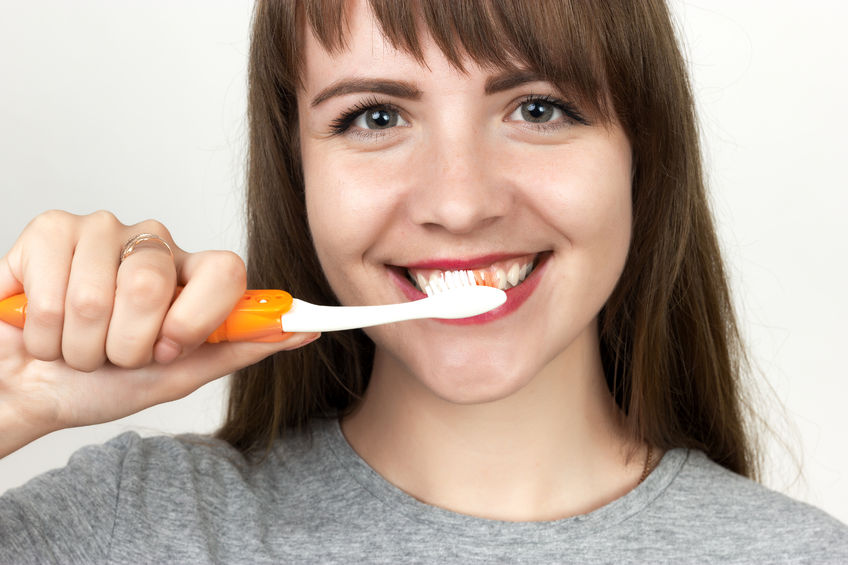Everyone wants to have a great smile which is why good oral hygiene is important! Having poor oral hygiene can lead to a variety of dental and medical problems in the future such as gum disease, infection, bone loss, heart disease, strokes and more. Regular check-ups and cleanings can prevent these problems as well as provide you with good oral hygiene. Follow HR Family Dental’s Good Dental Habits to improve your dental hygiene routine.
Tips for Good Dental Habits
- Proper Brushing: One of the easiest steps to do to help your teeth keep clean. When brushing your teeth, position the bristles at an angle of 45 degrees near the gum line. Both the gum line and the tooth surface should be in contact with the bristles. Brush the outer surfaces of the teeth using a back-and-forth, up-and-down motion, making sure to be done gently in order to avoid bleeding. To clean the inside surfaces of the teeth and gums, place the bristles at a 45-degree angle again and repeat the back-and-forth, up-and-down motion. Lastly, brush the surfaces of your tongue and the roof of your mouth to remove bacteria, which might cause bad breath. Try to brush at least twice a day to prevent acid buildup from the breakdown of food by bacteria. However, if your work or activities prevent you from doing this, thoroughly rinse your mouth with water after eating to minimize the amount of food that would serve as the substrate for the bacteria.
- Flossing: We know, it’s a chore and a lot of times forgetful after brushing if rushing out the door or heading to bed. However, flossing can help you remove food particles and other detrimental substances that brushing regularly cannot. Flossing allows you to reach deep between your teeth where the toothbrush bristles cannot reach or even mouthwash cannot wash away. We recommend flossing at least once a day.
- Visit Your Dentist: You should visit your dentist at least twice a year to have a full hygiene treatment performed. Also at these appointments, a comprehensive exam is taken with x-rays to help detect and prevent future dental treatments from occurring.



